Hi. My name is Alex Shurts. Back in 2009, inspired by a video game called Deus Ex which was about a world controlling shadow government, I myself began working on Grayland, which is a post apocalyptic science fiction story that takes place across the entire universe. Originally the basic concept of the story was going to take place on earth alone, but as i've expanded my story since then I myself have also expanded the basic concept of the story into what I plan to be a film trilogy. The story concept is very complex and I won't be able to fit all of the subject matters the story covers here without posting all the content i've made so far.
Much of the following is an introductory to the concept document for my story.
Two things I want to clarify before I begin. First off, the expansive nature of the story. I have spent quite a few years working on this story and as a result have made numerous changes. It gets to the point where I can't police every detail that I was supposed to either change, but didn't or a plot element or theme that needs to be removed because i've thought differently from it by now. Second of all the tone. The tone of this concept document is completely different than the script. Mainly because it detailed the societal changes Japan goes through before becoming a crime capital in the world. The plot point of foreign gangs migrating to Japan to exploit it's violent crime rate isn't intended to proke racist thought. In fact quite a few protagonistic characters in the character documents are foreigners. One of the protagonists is a Muslim from Somolia. In fact, part of me thinks that the plot proves that multiculturalism is inevitable since it involves teleportation being used to for immigration. It is more or less a critique of many aspects of globalism, and states numerous alternatives for globalism due to technological advancements and security loopholes.
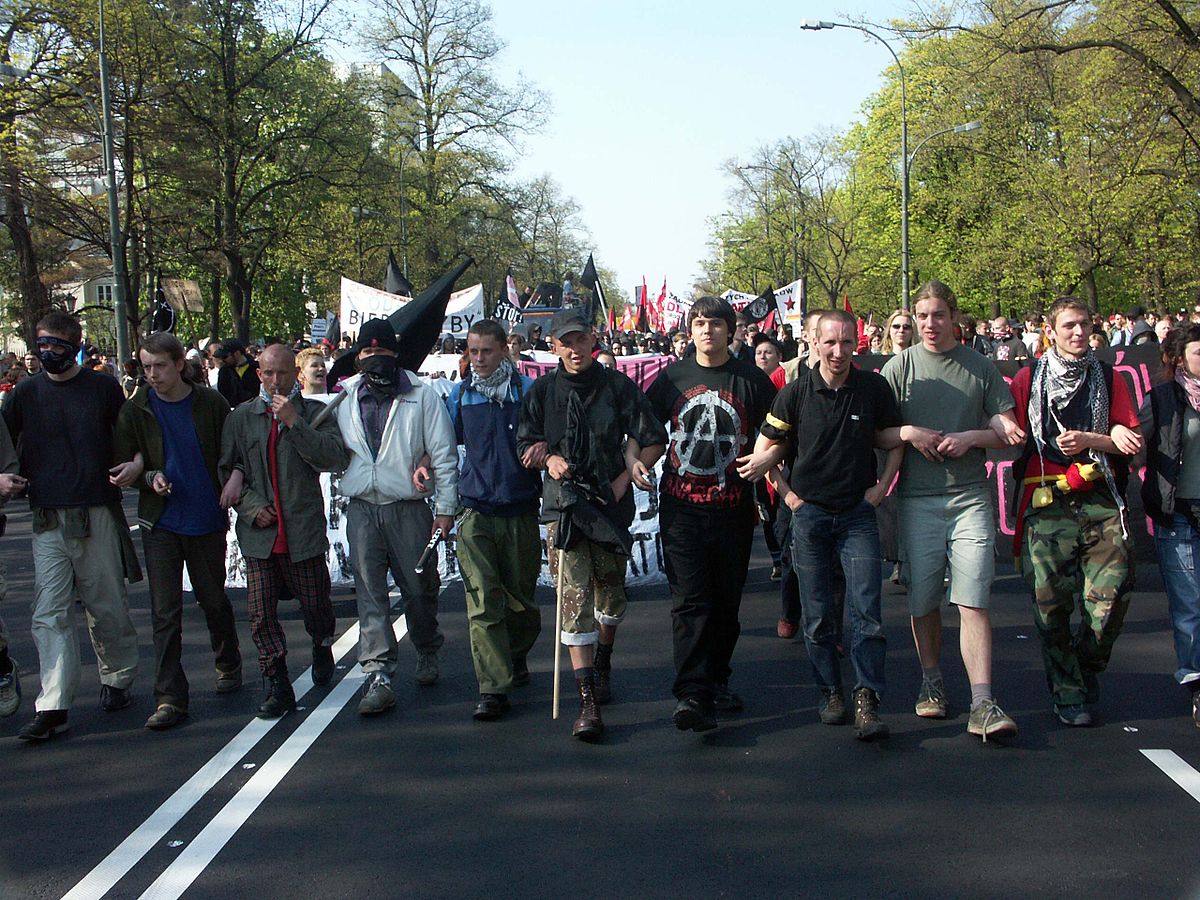
 en.wikipedia.org
en.wikipedia.org
The question the story brings is how, society is to grasp this and the responsibilities a free society has when technology becomes too advanced, yet while civilizations across the world are in decline. Still, I am not a professional as anything could happen as I research further into Grayland's story.
I got inspiration for this story from the movies the Warriors, the Dark Knight, The Matrix 1 and 2(third one was aweful), Team America World Police, 1984(the novel, and no. I do not expect to become the next George Orwell. Please don't make comparisons), Bioshock:Infinite, Metropolis(the anime film), the Marathon franchise(videogame franchise), and Starwars a new Hope. I was originally hoping to pitch this to David Sandberg or Goro Taniguchi, but considering that film school is a must for anyone who wants their film to be made, I think that would be the best place to start.
The concept of the film involving a shadow government came from Deus Ex, while the plot point about Japanese becoming one of the most dangerous countries in the world in the future, decades from now was inspired by the Warriors. The 1979 Warriors film inspired that strange concept(as in LSD strange) of foreign gangs from around the world flocking to Japan after it accepts 120 million foreigners(a spiritual pipe dream for human rights groups in the country since right now Japanese society is rather hesitant about massive open doors).
Sidenote:The main purpose of this plot point is to make the concept of the story where foreign gangs from around the world(this document is just the background story of the film) travel to Japan on D-Company's behalf, seem plausible. Like I said, i'm not trying to make a statement against immigration.
The Dark Knight series, by Christopher Nolan provided most of the inspiration for the villain, Robin Lench. The head of D-Company whose goal is to, not only turn Japan into one of the most dangerous countries on earth, but hijack the economy. Originally Grayland was exclusively about Nippon Kaigi as the antagonistic organization, but I got so obsessed with the concept of foreign gangs that I added D-Company since the foreign criminal gangs felt tacked on without them. After adding D-Company, the was going to involve a war between Nippon Kaigi and D-Company with PSYSOC(the protagonist organization), but I had trouble writing the script that way.
The Matrix inspired the action scenes which are mostly done via gun-fu, however aside from the fact that the action scenes in Grayland are most gruesome, one of the most unique aspects of the action scenes come from, not only the weapons enemies would use, but the enemies themselves. Each gang in the film has their own types of weapons, gadgets, and abilities that seperate them from one another, much like the various weapons, enemies, and vehicles from Starwars, though if you look at the script, you'll see that Graylands enemies are much weirder and wonderfully strange, where the Matrix, once you look past how well done most of the action scenes are, the weapons are nothing speical from every other action movie you've scene. The action scenes were further inspired by District B13, via parkour.
Sidenote:One of my inspirations for writing Grayland was my overall disappointment with the Matrix series despite the fact that I liked the first two films. I just thought that the series was nowhere near as good as it could have been. So I figured i'd write a story that would succeed where the Matrix has failed.
Team America World Police inspired the satirization of PSYSOC attacking both far-left and far-right groups(which in the movie are really life organizations since real life referances add more depth) in the background story to the plot.
The inspiration from the novel, 1984 by George Orwell can be rather misleading. What I wanted to do with Grayland's philosophy was create a system of beliefs, except the opposite of what George Orwell was warning about. Instead of mental conditioning being used to create tyranny, I thought that augmentations and mental training could be used to replace government so long as there are safe guards are put in place to prevent abuse. The philosophical inspiration is going to be one of the more controversial aspects of the story since 1984 and the message it carried as about society avoiding from the type of government depicted in the book. That being try not to be offended.

 hpluspedia.org
hpluspedia.org
Bioshock Infinite inspired PSYSOC prophet and leader Saga, a genetically and cybernetically modified Nordic alien child with boundless wisdom and infinite knowledge due to her brain implants. The art style of the film that uses cel-shading, rotoscoping, practical effects(instead of explosions being CGI'd most will be practical for the sake of more detail), and blending CGI facial features that, in turn give the characters anime style facial features with live action actors was inspired by the 2001 anime movie, Metropolis, which is loosely based on the 1927 silent film of the same name.
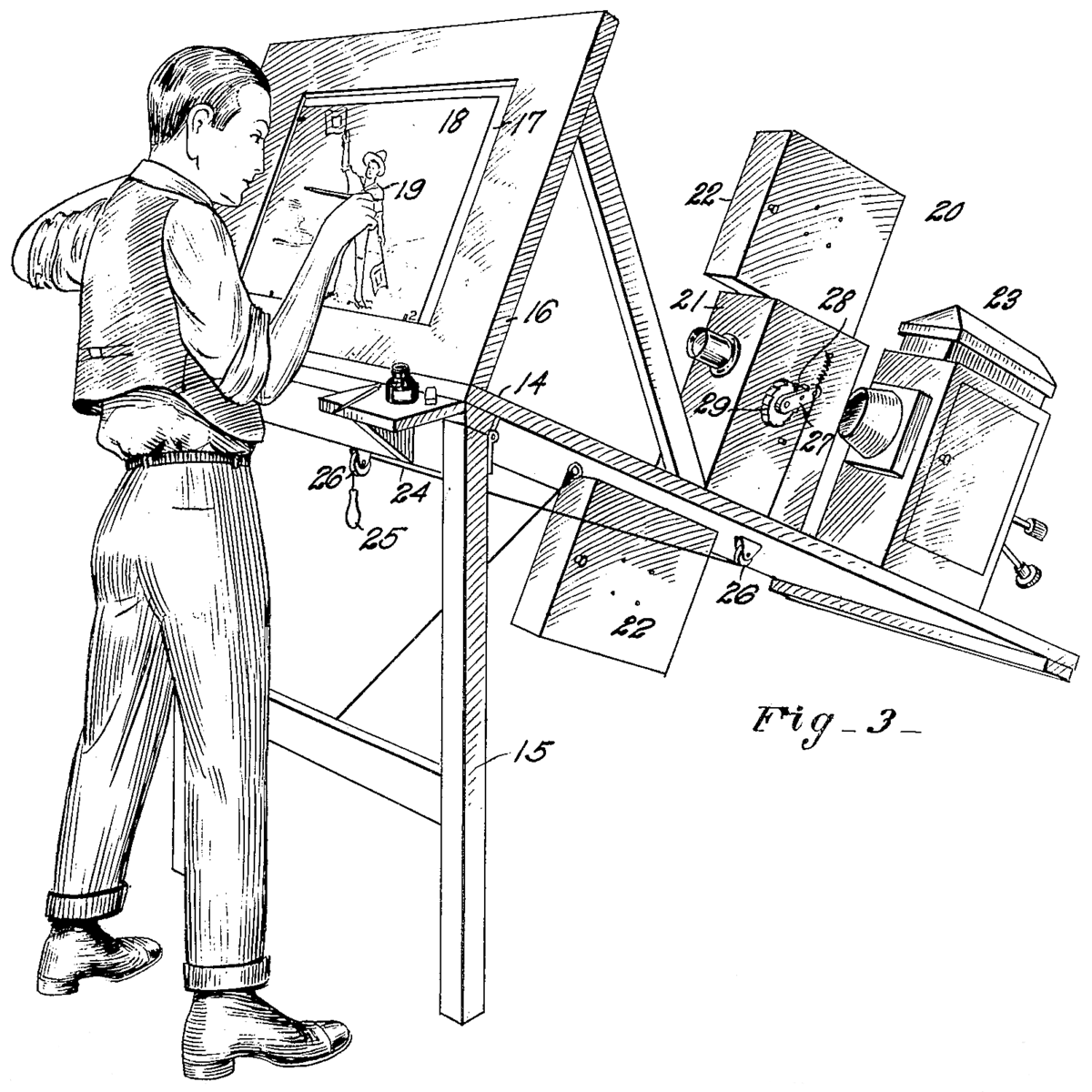
 en.wikipedia.org
en.wikipedia.org
One idea I have if this is ever greenlit is for this to be the first theatrical movie to be shown in virtual reality.
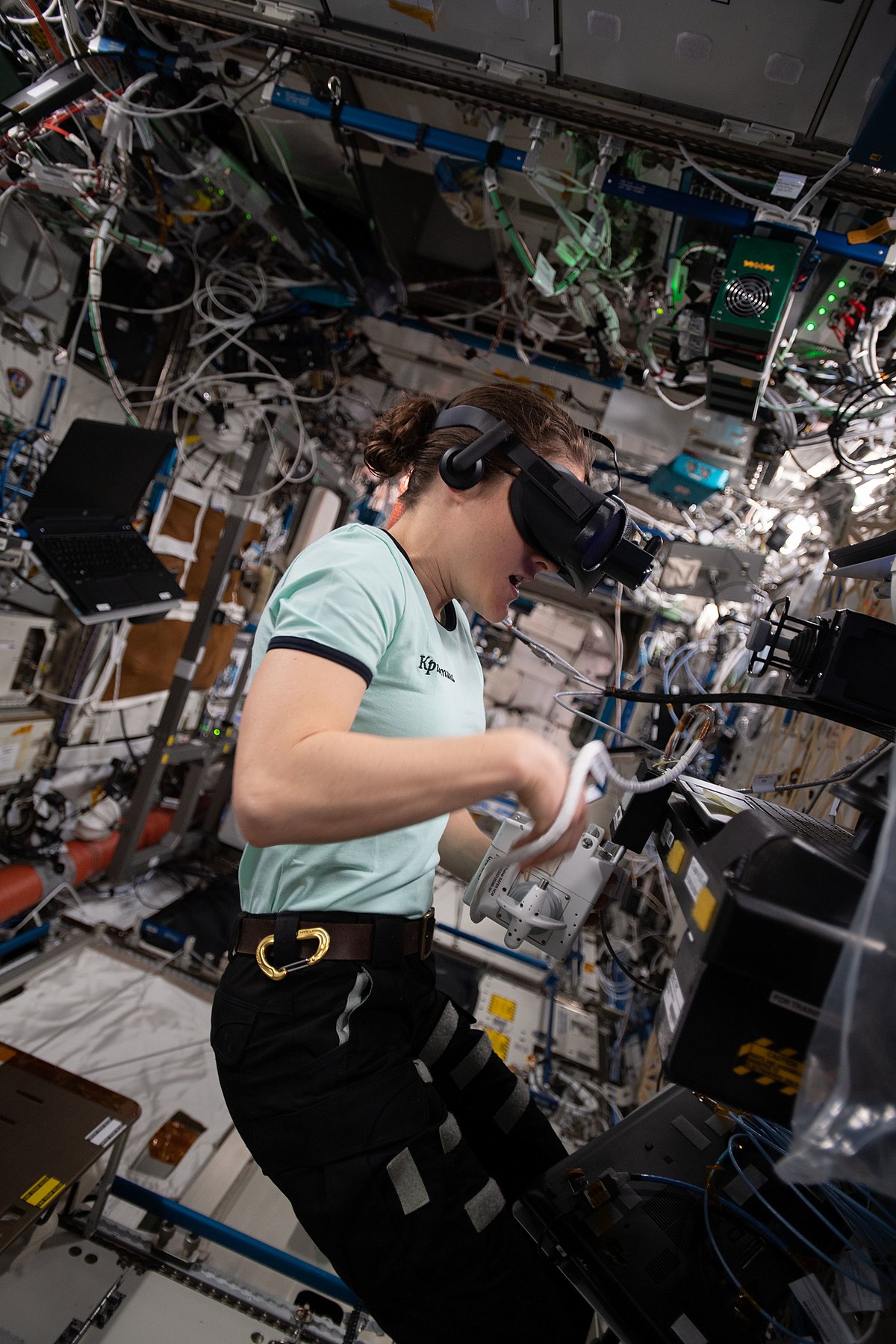
 en.wikipedia.org
en.wikipedia.org
The space opera themes of the story, involving various alien races came from Bungies Marathon franchise which also inspired Saga, one of the characters(thanks to one of the AL characters Durandal).
Finally the set design concepts were largely inspired by Starwars a New Hope, which also inspired the technological advances humanity makes when coming into contact with aliens.
One of the main moral themes of the movie is the upcoming technological singularity due to the advancement of technology. A future in which in order for freedom to continue to exist humanity must eventually replace all forms of government with an organized society that functions via brain implants, thus destroying the need to rebel as society runs itself. Free from interference with no need to rebel due to the freedom from chaos and freedom from government.
 en.wikipedia.org
en.wikipedia.org
Cut to 8:03
Remember, this document is just a basic concept. In order to really grasp the potential I feel the story has, you'll likely need to read the character documents and script.
One more thing. Grayland has a lot of cultural references to pop culture and while some movie studios may say that comes with the risk of copyright infringement, not only has there been popular media that references numerous other forms of pop culture without risk of copyright, part of Graylands charm are the pop culture references it has. Most notably, the fact that the plot involves the use of actual criminal gangs(without actual gang actors) as opposed made up ones. The idea of referencing real events, organizations, and pop culture icons is to add not only to the films charm, but also it's cultural impact, part of which would come from it's references to actual events and organizations. While this will increase controversy, it would do so in a way that effects it's cultural impact.
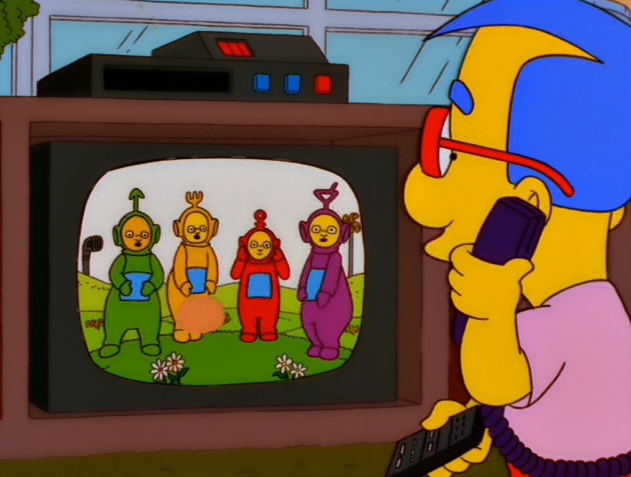
 simpsons.wikia.com
simpsons.wikia.com

 wasteland.wikia.com
wasteland.wikia.com
 en.wikipedia.org
en.wikipedia.org

 futurama.wikia.com
futurama.wikia.com
South Park even did an episode of Scientology, a cult that files lawsuits against those who bash it.
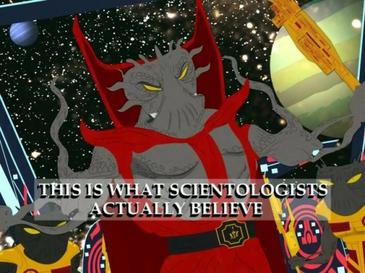
 en.wikipedia.org
en.wikipedia.org
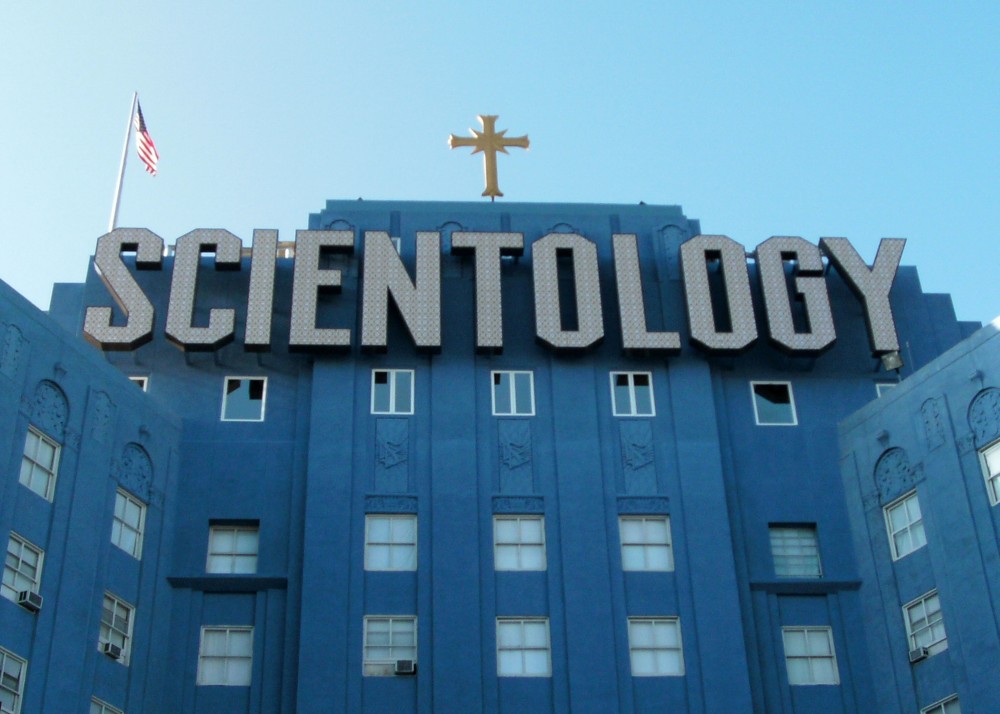
 en.wikipedia.org
en.wikipedia.org
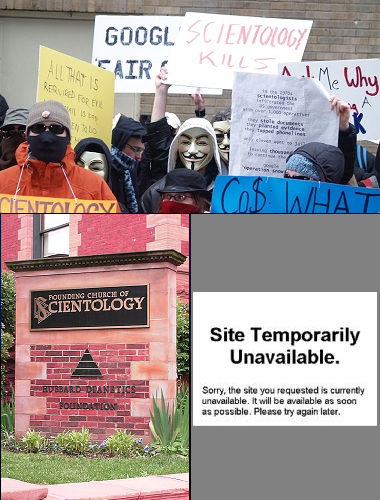
 en.wikipedia.org
en.wikipedia.org
Grayland has a few characters based on real people, including the secret identity of the main villain of the first film.
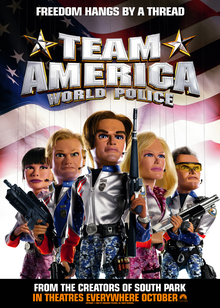
 en.wikipedia.org
en.wikipedia.org
One thing I would like to do, if Grayland ever gets accepted as an idea is contact Matt Stone and Trey Parker since their show South Park has more references than any other franchise i've known. If Grayland is accepted as an idea I would like to share what I am working on with Matt Stone and Trey Parker to get advice one how to keep the cultural and real life references in Grayland instead of making things up. Of course I would have to show them what I am working on. If they give me advice needed to maintain these references, in return I have a sidenote in the Grayland script about a concept for a South Park parody of Grayland. It's just a concept so far, but I think it could parody the Trapped in the Closet episode by joking about my beliefs in the Grayland philosophy(This is what the creator of Grayland actually believes in). Wouldn't hurt make fun of myself while watching it.
Sidenote:I don't intend to compare Grayland to South Park other than the constant pop culture and real life references. South Park is a comedy while Grayland is science fiction.

 en.wikipedia.org
en.wikipedia.org

 en.wikipedia.org
en.wikipedia.org
I firmly feel Graylands cultural impact would be stronger if the references are real. However, I seem to be being arrogant here. I am aware that while I believe that Grayland has a lot of potential, I won't instantly confirm that i'll be enough to get them to back me up. Even though Grayland of course has a unique anime style, I believe that given the references it may have to be developed in an american studio since copyright laws are tougher in Japan.
Sidenote:I don't know if there's a genre of story telling involving real world events, but still, I might as well make a name. The Fact-Fiction genre.
While references towards real life events and organizations does lead to massive amounts of controversy, it really can do wonders to help a franchise's cultural impact the same way it did with South Park. In fact the GTA series is also famous for it's controversy, despite not referencing real world events. Of course, controversies in movies and videogames have to make sense in order for their cultural impact to work. I did my best so that the references work in the film's favor. Not against it. In all fairness, the GTA games don't reference real life all that much, though I never understood why. I really think GTA would be stronger if it did.
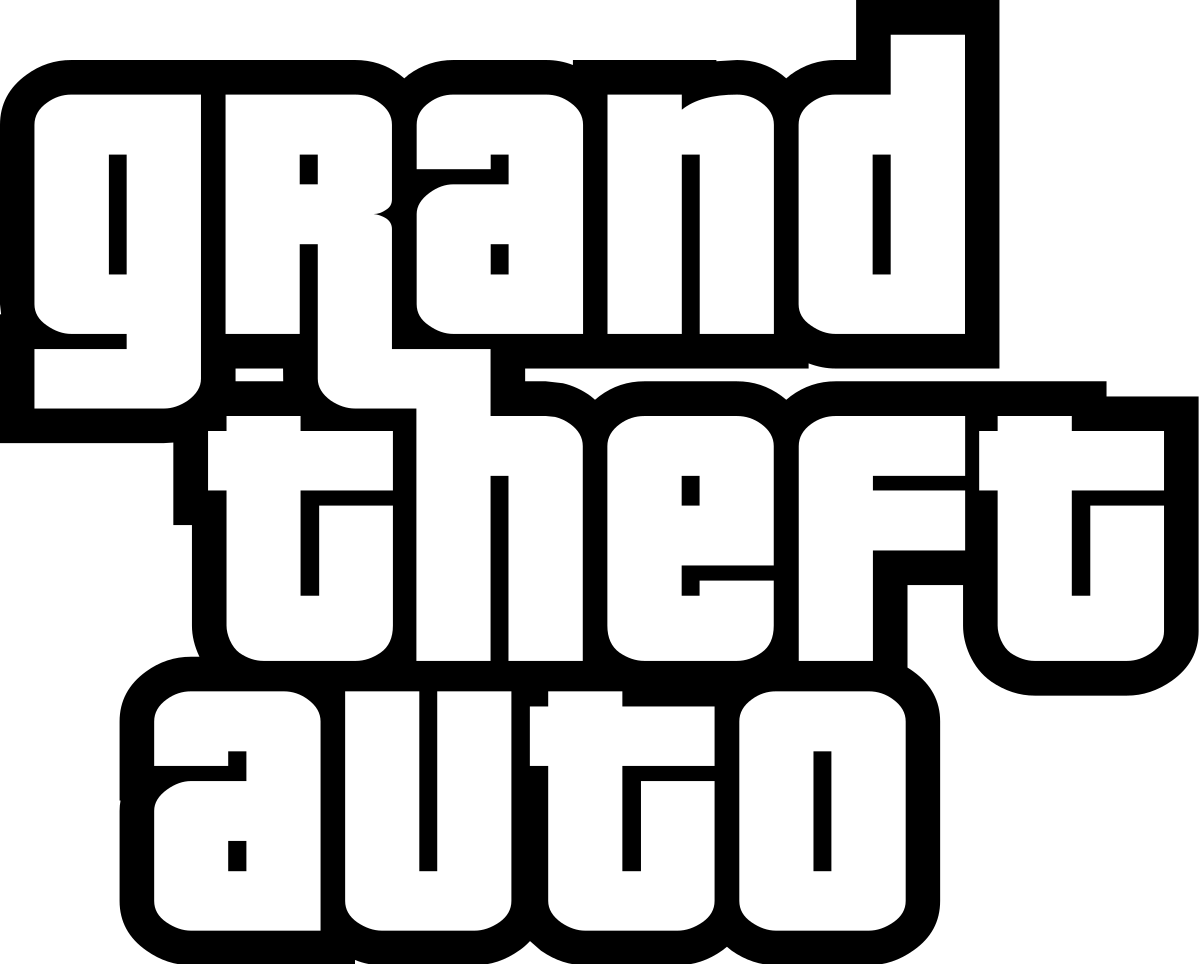
 en.wikipedia.org
en.wikipedia.org
 en.wikipedia.org
en.wikipedia.org
Grayland's potental for controversy is less in line with South Park and Grand Theft Auto and more inline with Bioshock Infinite or the novel Starship Troopers due to it's philosphy. Like Bioshock Infinite, Grayland features a lot of references to real world events which I believe is going to help it's cultural impact, while causing some degree of controversy.
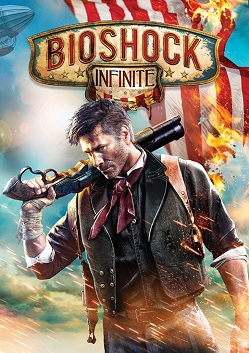
 en.wikipedia.org
en.wikipedia.org
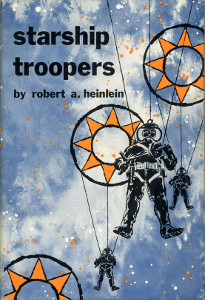
 en.wikipedia.org
en.wikipedia.org
Much of the following is an introductory to the concept document for my story.
Two things I want to clarify before I begin. First off, the expansive nature of the story. I have spent quite a few years working on this story and as a result have made numerous changes. It gets to the point where I can't police every detail that I was supposed to either change, but didn't or a plot element or theme that needs to be removed because i've thought differently from it by now. Second of all the tone. The tone of this concept document is completely different than the script. Mainly because it detailed the societal changes Japan goes through before becoming a crime capital in the world. The plot point of foreign gangs migrating to Japan to exploit it's violent crime rate isn't intended to proke racist thought. In fact quite a few protagonistic characters in the character documents are foreigners. One of the protagonists is a Muslim from Somolia. In fact, part of me thinks that the plot proves that multiculturalism is inevitable since it involves teleportation being used to for immigration. It is more or less a critique of many aspects of globalism, and states numerous alternatives for globalism due to technological advancements and security loopholes.

Anti-globalization movement - Wikipedia
The question the story brings is how, society is to grasp this and the responsibilities a free society has when technology becomes too advanced, yet while civilizations across the world are in decline. Still, I am not a professional as anything could happen as I research further into Grayland's story.
I got inspiration for this story from the movies the Warriors, the Dark Knight, The Matrix 1 and 2(third one was aweful), Team America World Police, 1984(the novel, and no. I do not expect to become the next George Orwell. Please don't make comparisons), Bioshock:Infinite, Metropolis(the anime film), the Marathon franchise(videogame franchise), and Starwars a new Hope. I was originally hoping to pitch this to David Sandberg or Goro Taniguchi, but considering that film school is a must for anyone who wants their film to be made, I think that would be the best place to start.
The concept of the film involving a shadow government came from Deus Ex, while the plot point about Japanese becoming one of the most dangerous countries in the world in the future, decades from now was inspired by the Warriors. The 1979 Warriors film inspired that strange concept(as in LSD strange) of foreign gangs from around the world flocking to Japan after it accepts 120 million foreigners(a spiritual pipe dream for human rights groups in the country since right now Japanese society is rather hesitant about massive open doors).
Sidenote:The main purpose of this plot point is to make the concept of the story where foreign gangs from around the world(this document is just the background story of the film) travel to Japan on D-Company's behalf, seem plausible. Like I said, i'm not trying to make a statement against immigration.
The Dark Knight series, by Christopher Nolan provided most of the inspiration for the villain, Robin Lench. The head of D-Company whose goal is to, not only turn Japan into one of the most dangerous countries on earth, but hijack the economy. Originally Grayland was exclusively about Nippon Kaigi as the antagonistic organization, but I got so obsessed with the concept of foreign gangs that I added D-Company since the foreign criminal gangs felt tacked on without them. After adding D-Company, the was going to involve a war between Nippon Kaigi and D-Company with PSYSOC(the protagonist organization), but I had trouble writing the script that way.
The Matrix inspired the action scenes which are mostly done via gun-fu, however aside from the fact that the action scenes in Grayland are most gruesome, one of the most unique aspects of the action scenes come from, not only the weapons enemies would use, but the enemies themselves. Each gang in the film has their own types of weapons, gadgets, and abilities that seperate them from one another, much like the various weapons, enemies, and vehicles from Starwars, though if you look at the script, you'll see that Graylands enemies are much weirder and wonderfully strange, where the Matrix, once you look past how well done most of the action scenes are, the weapons are nothing speical from every other action movie you've scene. The action scenes were further inspired by District B13, via parkour.
Sidenote:One of my inspirations for writing Grayland was my overall disappointment with the Matrix series despite the fact that I liked the first two films. I just thought that the series was nowhere near as good as it could have been. So I figured i'd write a story that would succeed where the Matrix has failed.
Team America World Police inspired the satirization of PSYSOC attacking both far-left and far-right groups(which in the movie are really life organizations since real life referances add more depth) in the background story to the plot.
The inspiration from the novel, 1984 by George Orwell can be rather misleading. What I wanted to do with Grayland's philosophy was create a system of beliefs, except the opposite of what George Orwell was warning about. Instead of mental conditioning being used to create tyranny, I thought that augmentations and mental training could be used to replace government so long as there are safe guards are put in place to prevent abuse. The philosophical inspiration is going to be one of the more controversial aspects of the story since 1984 and the message it carried as about society avoiding from the type of government depicted in the book. That being try not to be offended.

Anarcho-transhumanism - H+Pedia
Bioshock Infinite inspired PSYSOC prophet and leader Saga, a genetically and cybernetically modified Nordic alien child with boundless wisdom and infinite knowledge due to her brain implants. The art style of the film that uses cel-shading, rotoscoping, practical effects(instead of explosions being CGI'd most will be practical for the sake of more detail), and blending CGI facial features that, in turn give the characters anime style facial features with live action actors was inspired by the 2001 anime movie, Metropolis, which is loosely based on the 1927 silent film of the same name.

Rotoscoping - Wikipedia
One idea I have if this is ever greenlit is for this to be the first theatrical movie to be shown in virtual reality.

Virtual reality applications - Wikipedia
The space opera themes of the story, involving various alien races came from Bungies Marathon franchise which also inspired Saga, one of the characters(thanks to one of the AL characters Durandal).
Finally the set design concepts were largely inspired by Starwars a New Hope, which also inspired the technological advances humanity makes when coming into contact with aliens.
One of the main moral themes of the movie is the upcoming technological singularity due to the advancement of technology. A future in which in order for freedom to continue to exist humanity must eventually replace all forms of government with an organized society that functions via brain implants, thus destroying the need to rebel as society runs itself. Free from interference with no need to rebel due to the freedom from chaos and freedom from government.
Technological singularity - Wikipedia
Cut to 8:03
Remember, this document is just a basic concept. In order to really grasp the potential I feel the story has, you'll likely need to read the character documents and script.
One more thing. Grayland has a lot of cultural references to pop culture and while some movie studios may say that comes with the risk of copyright infringement, not only has there been popular media that references numerous other forms of pop culture without risk of copyright, part of Graylands charm are the pop culture references it has. Most notably, the fact that the plot involves the use of actual criminal gangs(without actual gang actors) as opposed made up ones. The idea of referencing real events, organizations, and pop culture icons is to add not only to the films charm, but also it's cultural impact, part of which would come from it's references to actual events and organizations. While this will increase controversy, it would do so in a way that effects it's cultural impact.

Cultural references/Television
This is a list of Cultural references to television in The Simpsons. "Freeks no Geeks" - At the end of Treehouse of Horror XXIV Homer ends the episode by saying "and that's how I met your mother" with the credits the rolling with the How I met your mother theme song. "Lisa's Sax" - The beginning...

References In Wasteland 2
Wasteland 2, Much like The original and it's spiritual successors of the Fallout series, has tons of both referential humor and nods to popular pop culture that goes on and around it. 1 A 1.1 A Christmas Story 2 B 2.1 Mel Brook's Blazing Saddles 3 C 4 D 5 E 5.1 Evil Dead 6 F 7 G 8 H 9 I 10 J 11...
List of Celebrity Deathmatch episodes - Wikipedia
References
South Park even did an episode of Scientology, a cult that files lawsuits against those who bash it.

Trapped in the Closet (South Park) - Wikipedia

Scientology and law - Wikipedia

Scientology and the Internet - Wikipedia
Grayland has a few characters based on real people, including the secret identity of the main villain of the first film.

Team America: World Police - Wikipedia
One thing I would like to do, if Grayland ever gets accepted as an idea is contact Matt Stone and Trey Parker since their show South Park has more references than any other franchise i've known. If Grayland is accepted as an idea I would like to share what I am working on with Matt Stone and Trey Parker to get advice one how to keep the cultural and real life references in Grayland instead of making things up. Of course I would have to show them what I am working on. If they give me advice needed to maintain these references, in return I have a sidenote in the Grayland script about a concept for a South Park parody of Grayland. It's just a concept so far, but I think it could parody the Trapped in the Closet episode by joking about my beliefs in the Grayland philosophy(This is what the creator of Grayland actually believes in). Wouldn't hurt make fun of myself while watching it.
Sidenote:I don't intend to compare Grayland to South Park other than the constant pop culture and real life references. South Park is a comedy while Grayland is science fiction.

Matt Stone - Wikipedia

Trey Parker - Wikipedia
I firmly feel Graylands cultural impact would be stronger if the references are real. However, I seem to be being arrogant here. I am aware that while I believe that Grayland has a lot of potential, I won't instantly confirm that i'll be enough to get them to back me up. Even though Grayland of course has a unique anime style, I believe that given the references it may have to be developed in an american studio since copyright laws are tougher in Japan.
Sidenote:I don't know if there's a genre of story telling involving real world events, but still, I might as well make a name. The Fact-Fiction genre.
While references towards real life events and organizations does lead to massive amounts of controversy, it really can do wonders to help a franchise's cultural impact the same way it did with South Park. In fact the GTA series is also famous for it's controversy, despite not referencing real world events. Of course, controversies in movies and videogames have to make sense in order for their cultural impact to work. I did my best so that the references work in the film's favor. Not against it. In all fairness, the GTA games don't reference real life all that much, though I never understood why. I really think GTA would be stronger if it did.

Grand Theft Auto - Wikipedia
South Park controversies - Wikipedia
Grayland's potental for controversy is less in line with South Park and Grand Theft Auto and more inline with Bioshock Infinite or the novel Starship Troopers due to it's philosphy. Like Bioshock Infinite, Grayland features a lot of references to real world events which I believe is going to help it's cultural impact, while causing some degree of controversy.

BioShock Infinite - Wikipedia

Starship Troopers - Wikipedia
Last edited:


